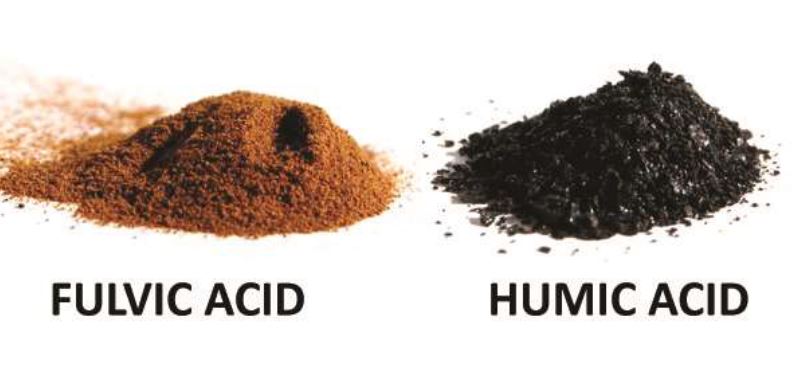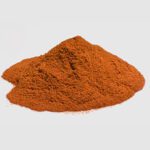Humic Acids.
Are complex organic molecules formed by the decomposition of organic matter. These directly influence the fertility of the soil, while contributing significantly to its stability, influencing the absorption of nutrients and, as a direct consequence, the exceptional growth of the plant.
Fulvic acids.
They are molecules of low molecular weight, extremely complex, soluble in water, either at acidic or basic pH. These acids reflect the nature of the plants and species of microorganisms that gave rise to them during the humification process, therefore, the reddish yellow or brownish yellow color that characterizes them. Fulvic acids, as well as humic acids, act in a similar way in the soil, since both increase the speed of seed germination and stimulate the proliferation of the microflora present in the soil.

What effects do humic acids have?
In acid soils they tend to neutralize them. With this, humic acids fix and immobilize to a large extent certain toxic elements in acid media such as Aluminum and heavy metals, reducing their toxicity.
In the case of alkaline soils, thanks to the formation of complexes, it allows the humic acids to cushion the high pH and as a consequence allows the macro and trace elements to be available for plants.
Humic acids applied to saline soils, thanks to the high cation exchange capacity of this type of acid, release elements such as Calcium and Magnesium, for example, cations that bind and form chelates.
For the restoration of soil quality, various practices have been developed, among which the use of organic fertilizers stands out, whose purpose is to increase the content of organic matter in the soil, improve the physical, chemical and biological conditions in the in order to restore soil health and increase crop yields.
Effect of fulvic acids.

In plants, fulvic acid stimulates metabolism, provides respiration, increases protein metabolism and the activity of multiple enzymes, increases the permeability of cell membranes, cell division and elongation, collaborates with the synthesis of chlorophyll, tolerates drought, benefits crops, stabilizes soil pH, contributes to electrochemical balance.
Fulvic acid helps plants better withstand periods of stress, as it better assimilates nutrients and gives them greater strength. By mixing the nutrients with our fulvic acids, their use will be increased, making the development and growth of the plants more efficient, which translates into an increase in the quality and quantity of the harvest produced.
Fulvic acid stimulates plant growth, increasing its vigor, stimulates absorption and promotes the penetration and active transport of nutrients at the fundamental membrane level of foliar and root cells, which acts as a promoter of plant growth.
IONI-COH is an improver of the physical, chemical and biological characteristics of agricultural soils and a precursor for the use of nutrients in foliar and edaphic applications.
IONI-COH is composed of minute particles of organic acids (Fulvic and Carboxylic); in the soil, these particles have the ability to attract nutrients, group them and make them available to the plant, thus avoiding their loss due to physical and chemical factors.
Biologically, IONI-COH acts as a precursor to the microbial balance of soils (prebiotic), by promoting the ideal characteristics for the development of beneficial organisms.
 AgronoBlog – Agriculture Blog
AgronoBlog – Agriculture Blog 
